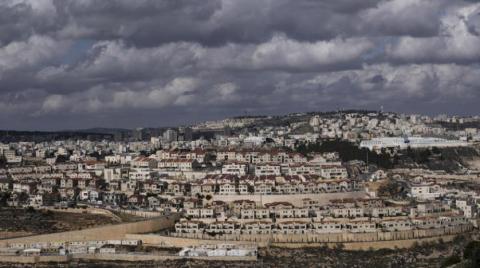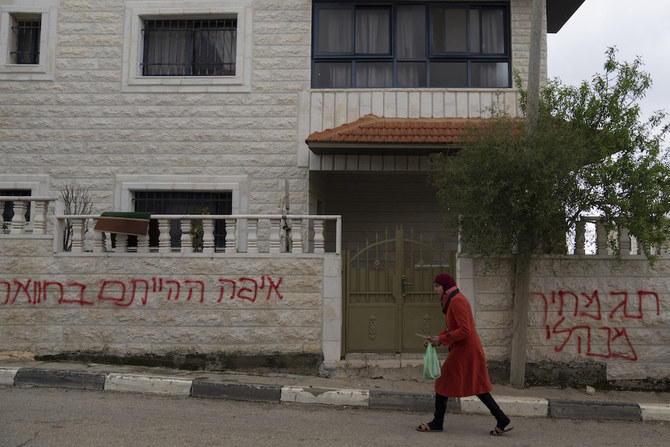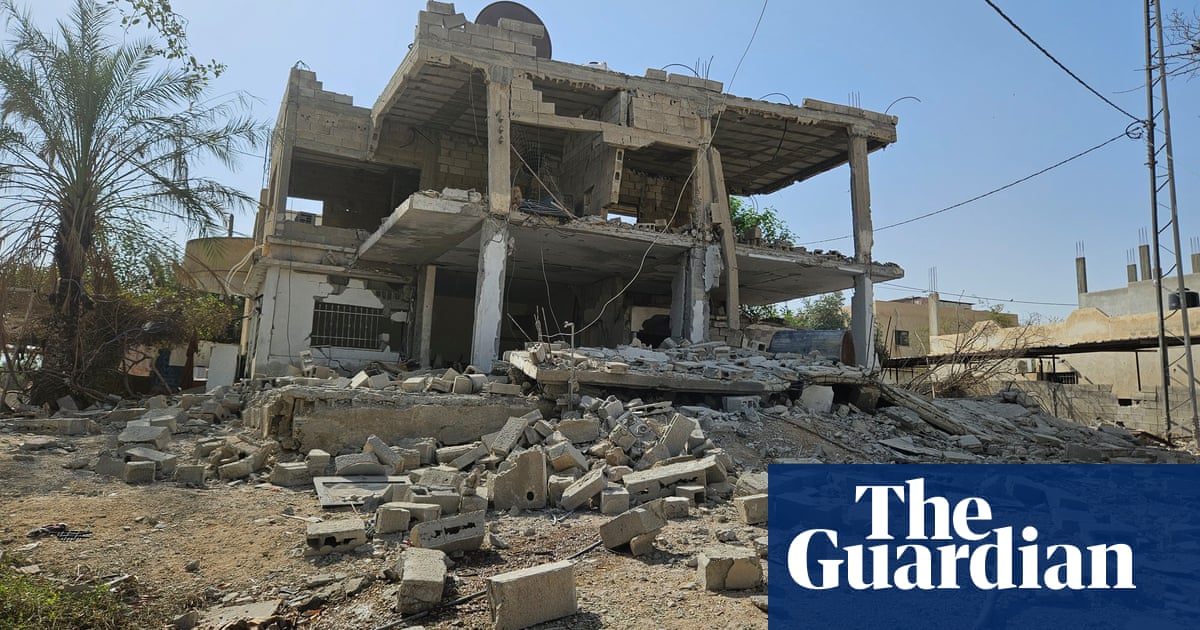
Little Ahmed could not have been more than six years old and, thankfully for my back, he was not too heavy. With him on my shoulders, we stumbled up the rocky bank to save his bare feet from being scratched on the rocks and thistles. Around us were eight other Palestinian children, a few Israeli activists and international officials.
This was a daily escort for these children to and from their school along a perilous 1.5-km journey. Harassment from Israeli settlers is the norm, hence the need for protection. Settlers have attacked the children and thrown rocks at their heads, in one case injuring a six-year-old girl. At the height of the COVID-19 pandemic, the Israeli activists were their only guardians, but the settlers are not averse to bashing them up too.
Al-Tuwani in the South Hebron Hills is the sole place in the entirety of the West Bank where Israeli soldiers play a role in protecting Palestinian children. In Hebron, I have seen settlers attack Palestinians children en route to school in front of soldiers who do nothing. But a Knesset subcommittee in 2004 ordered the army to escort these children up the hill by the side of the settler outpost of Havat Maon. Our role was to get them to the pick-up point. Settler cars parked on the hill showed they were waiting. European diplomats joined us to witness this daily ritual, but this was too much for the Israeli soldiers, whose commander declared that the area was now a closed military zone.
Imagine. The army should not be required. In an even semi-normal system, the army would warn the settlers not to attack children and to arrest them at once if they did. This highlights the extraordinary power settlers have, living above the law. The outpost itself is illegal under international law and, for the moment, under Israeli law too.
The settlers at this outpost have the most violent reputation in the vicinity. Earlier in September, they broke both the arms of Hafez Hureini. He was arrested for good measure on trumped up charges of murder and imprisoned, he told me, for 11 days before video evidence showed he was totally innocent. He laughs when I ask if any of the settlers will be held accountable.
An Israeli activist tells me there are 12 outposts in the area, including Havat Maon. Often, they are set up on a hill adjoining a mother settlement. It is not the settler numbers that matter as much as the additional slab of land the settlers establish control over. Further down the road, another new outpost asserts control over a valley and the settlers plant a vineyard for good measure.
Between 2017 and 2021, settlers built more than 50 new single-family settlements in the West Bank, at least 35 of which are shepherding outposts, like many I saw in the South Hebron Hills. It is an outpost bonanza. The settlers are getting ever bolder, buoyed by international silence and Israeli government encouragement.
For supposedly illegal enterprises, the outposts have a tip-top level of services, in contrast to their Palestinian neighbors, who have none. They have electricity and running water as well as proper access roads. As we pass one outpost, a digger starts work on another new access road. The Israeli activists report this to the army, who in theory should be halting such illegal activity. Fat chance.
Last week, the Israeli army was not shy in announcing that it would also provide these outposts with observation systems, lighting, public address systems and firefighting equipment. These systems will be portable. Why? Because any permanent construction would be illegal under existing laws.
This area of the South Hebron Hills covers about 3,000 hectares. Palestinian herdsmen live in simple concrete dwellings or shacks. There are also some in caves in Masafer Yatta, an area Israel has designated as Firing Zone 918. Since the early 1980s, Israel has been trying to forcibly evict the Palestinian residents.
The schoolchildren make their way past the outpost to their homes at Al-Tuwani. But they are not safe in their homes either. Al-Tuwani is one of 12 Palestinian villages inside the firing zone and, according to the families who live there, they are the lucky ones as it is on the edge. Some luck. The whole area is getting more dangerous, with more live-fire exercises. Getting in and out is also tougher. The Palestinians at Al-Tuwani have no cars. There are no paved roads. In fact, the Israeli army has confiscated dozens of vehicles in the zone.
One brilliant Israeli group has secured funding for solar panels and wind turbines to provide limited power, but these are liable to confiscation or destruction. The Palestinians need a permit for them, which they cannot get. The settlement outposts have no such deprivations.
We sip tea inside the cave where a family lives. They moved back there as it is safer than the buildings outside. The patriarch explains that he grew up in a cave where the Havat Maon outpost now lies. To survive, the family has had to sell most of its flock of sheep and goats. Their resources are running dry and so is time.
In May, the Israeli Supreme Court determined that the Israeli army could evict the 1,000-plus Palestinian residents of Masafer Yatta. Another bout of ethnic cleansing is in the pipeline, not least as the final appeal has been rejected.
Settler outposts are not random and Masafer Yatta is not a one-off. Such scenes are replicated in many areas of the West Bank. Outposts are the cornerstone of how the settler enterprise expands, herding Palestinians into ever-smaller enclosures and starving them of a livelihood. The Israeli authorities want to herd the Palestinian herders of Masafer Yatta into the town of Yatta itself.
The settlers are getting ever bolder, buoyed by international silence and Israeli government encouragement.
Chris Doyle
The Israeli elections on Nov. 1 may well see a far-right government in power once more. Benjamin Netanyahu has courted some of the most extreme racist elements, including Otzma Yehudit and its leader, Itamar Ben-Gvir, who may well become a minister in a Netanyahu-led coalition. Ben-Gvir supports the expulsion of Palestinians. More than one Israeli political observer says that the “legalization” of these settler outposts may be the price Ben-Gvir demands to support a coalition. It would be the formalization of a massive land grab.
How much does this matter? The settlement enterprise is huge, with a population of more than 650,000 in the West Bank. In addition to the 120 or so official settlements, there are more than 140 outposts. The South Hebron Hills is an object lesson on how this works.
The Israeli state may technically call outposts unauthorized, but the reality is they are a core part of the plan to impose a one-state reality where the Palestinians only have a future as a fragmented, powerless and subservient pool of cheap labor with no rights.
Chris Doyle is director of the Council for Arab-British Understanding, in London. Twitter: @Doylech
Disclaimer: Views expressed by writers in this section are their own and do not necessarily reflect Arab News" point of view
Opinion
Dr. Mohammed Al-Sulami
Iran could turn to mercenaries to maintain order
Author
Rabbi Marc Schneier
Indelible interfaith progress has been made in last year
Author
Ramzy Baroud
Why Israel’s prime minister spoke of a Palestinian state
Author
Chris Doyle
Face to face with Israel’s settlement enterprise in the wild West Bank
Author
Baria Alamuddin
Europe’s far-right populists are on the march again
Author
MORE IN OPINION
Latest Updates
Saudi Arabia to host the 2029 Asian Winter Games in Trojena, Neom
Saudi Arabia to host the 2029 Asian Winter Games in Trojena, Neom
Independent probe blows lid off ‘systemic’ abuse and sexual misconduct in US women’s soccer
Independent probe blows lid off ‘systemic’ abuse and sexual misconduct in US women’s soccer
Trump files $475 million defamation lawsuit against CNN
Trump files $475 million defamation lawsuit against CNN
French star Wembanyama set for his first taste of NBA life
French star Wembanyama set for his first taste of NBA life
Leicester earn first Premier League win, drop Forest into last place












